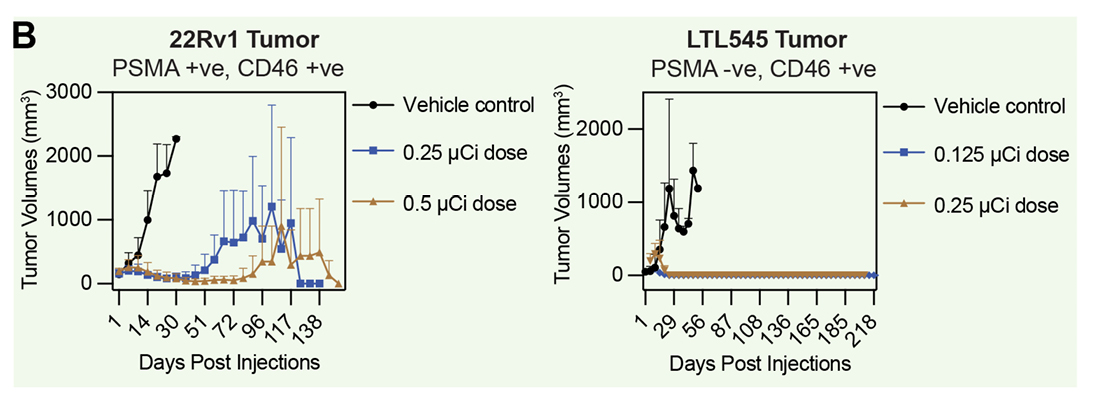New Theranostic Approach Targets Prostate Cancer
Today, patients with prostate cancer can be effectively treated with surgery, radiation, or androgen deprivation therapy. However, a significant fraction of patients progress to metastatic, castration-resistant prostate cancer (mCRPC), which is resistant to these treatments.
Dr. Anil Bidkar, Dr. Robert Flavell (Molecular Imaging Lab PI), and Dr. Bin Liu along with other co-authors have recently published a paper on a therapeutic strategy to address the limitations of current PSMA-directed theranostic agents for prostate cancer. Theranostics is a targeted approach to prostate cancer care that combines therapeutics and diagnostics to simultaneously or sequentially both diagnose and treat these conditions.
Currently, prostate-specific membrane antigen (PSMA)-targeted radiopharmaceuticals are the only clinically available molecules for theranostics of prostate cancer and, unfortunately, a significant number of mCRPC patients are PSMA-negative at diagnosis or develop PSMA negativity on imaging over the course of treatment. The novel approach developed by Dr. Robert Flavell’s group targets the novel biomarker CD46 on prostate cancer cells. Since CD46 is expressed on multiple healthy organs, in addition to prostate tumors, the team developed an antibody against the cancer-specific epitope on CD46 protein to deliver a radiopharmaceutical only to the tumor.
A: Schematic of the CD46 targeted alpha therapy for prostate cancer cells.

The development and preclinical evaluation of an alpha-particle therapy by targeting CD46 is a promising avenue for the treatment of prostate cancer. Research from Dr. Robert Flavell’s group confirms that CD46 antibody can be loaded with 225Ac, an alpha particle emitting radioisotope, to prepare a radioimmunotherapy molecule for prostate cancer tumor treatment. The 225Ac labeled anti-CD46 antibody delivers a high radiation dose to the tumors, resulting in a potent antitumor effect. This alpha particle therapy agent was able to treat the tumor models, which cannot be targeted by PSMA-based therapy agents.
B: Tumor volume plots showing significant delayed growth or complete remission of tumors after alpha particle therapy

This therapy’s targeted approach offers a potential alternative to PSMA-based therapies for patients with either primary or acquired resistance to PSMA treatment. While more research is needed before this approach can become a clinical standard of care, it is a promising avenue for further exploration in the fight against prostate cancer.
You can read more about Flavell’s research in Clinical Cancer Research.
